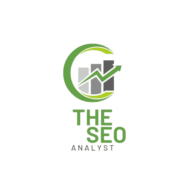- Understanding WordPress Website Speed
- Reasons for Slow WordPress Loading
- Assessing WordPress Website Speed
- Improving WordPress Website Speed
- Optimizing the WordPress Admin Area
- Enhancing the WordPress Editor Speed
- Reducing Page Load Time with Plugins
- Insights from the WordPress Community
- Fixing Slow WordPress Websites
- Conclusion
- FAQ
In today’s fast-paced digital landscape, the loading speed of a website plays a critical role in user experience and search engine rankings.
Slow-loading websites often lead to higher bounce rates, decreased conversions, and overall dissatisfaction among visitors.
Regarding WordPress websites, various factors can contribute to sluggish loading times.
This article will explore the reasons behind slow WordPress loading and provide actionable solutions to optimize your site’s speed.
Understanding WordPress Website Speed
Before delving into the causes and solutions, it’s essential to understand the elements that affect WordPress website speed. The server response time, page size, and external scripts all significantly determine how quickly your website loads for visitors.
By addressing these aspects, you can dramatically improve the performance of your WordPress site.
Reasons for Slow WordPress Loading
There are several common reasons why WordPress websites may experience slow loading times. One of the main culprits is the use of bloated themes and plugins.
These add unnecessary code and functionality, which can significantly increase load times. It’s important to choose lightweight themes and plugins that are optimized for speed.
Another factor contributing to slow loading is the size of images used on the website. Large image sizes can significantly impact performance, especially if they need to be properly optimized.
By compressing and optimizing images, you can reduce their file size without compromising quality, resulting in faster load times.
Inefficient coding practices can also be a significant cause of slow WordPress loading.
Excessive database queries, unoptimized CSS and JavaScript files, and ineffective coding practices can all contribute to sluggish performance.
Ensuring that your code is clean, concise, and optimized for speed is essential.
Additionally, poor hosting services can be a significant bottleneck for website speed. If your hosting provider needs the necessary infrastructure and resources to handle your website’s demands, it can lead to slow loading times.
Consider upgrading to a reputable hosting provider with better performance and faster server response times.
Assessing WordPress Website Speed
To identify areas for improvement and measure the speed of your WordPress website, you can utilize online tools specifically designed for website speed tests.
These tools provide valuable insights into your site’s performance metrics, such as page load time, server response time, and overall page size.
By analyzing these metrics, you can identify performance bottlenecks and areas that require optimization.
Improving WordPress Website Speed
Once you have assessed your WordPress website’s speed, it’s time to implement strategies and techniques to enhance its loading time.
Here are some practical ways to improve WordPress website speed:
- Choose a lightweight theme: Opt for a well-coded and optimized theme that prioritizes speed and performance.
- Optimize plugins: Limit the number of plugins you use and choose lightweight, well-maintained ones. Deactivate and delete any unnecessary plugins that add bloat to your website.
- Compress and optimize images: Reduce file sizes by compressing them without sacrificing quality. Utilize image optimization plugins or online tools to automate this procedure.
- Minify CSS and JavaScript files: Remove unnecessary whitespace, comments, and line breaks from your CSS and JavaScript files to reduce their file sizes.
- Utilize caching plugins: Implement caching plugins that generate static HTML files of your web pages, reducing the need for dynamic page generation on every visit.
- Upgrade hosting service or use a CDN: Consider upgrading to a higher-performance hosting plan or using a content delivery network (CDN) to distribute your website’s files across multiple servers worldwide.
Optimizing the WordPress Admin Area
Apart from the front-end performance of your WordPress website, it’s essential to address any sluggishness in the admin area.
A slow WordPress admin panel can hinder website management and content creation. To optimize the WordPress admin area:
- Keep plugins updated: Ensure that all installed plugins are up to date, as outdated plugins can negatively impact performance.
- Disable or remove unnecessary plugins: Deactivate or remove any unused or unnecessary plugins that might affect the admin area’s speed.
- Limit post revisions: WordPress automatically saves revisions of your posts, which can increase database size and slow down the admin area. Limit the number of post revisions or use a plugin to manage them effectively.
Enhancing the WordPress Editor Speed
The WordPress editor is a crucial tool for content creation, and its speed can significantly impact productivity. Here are some tips to enhance the speed of the WordPress editor:
- Disable unnecessary editor features: If you don’t use certain editor features, such as the Distraction-Free Writing Mode or the Fullscreen Mode, consider disabling them to reduce the editor’s loading time.
- Use lightweight and optimized themes: Choose a piece optimized for speed and performance, including the editor’s functionality.
- Utilize caching plugins: These can help speed up the editor’s rendering and improve overall performance.
Reducing Page Load Time with Plugins
There are various WordPress plugins available that can help optimize your website’s page load time. Here are a few popular ones:
- W3 Total Cache: This plugin improves website performance by caching static files, reducing server load, and improving user experience.
- WP Smush: WP Smush optimizes and compresses images to reduce their file size without compromising quality.
- Autoptimize: This plugin automatically optimizes your website’s CSS, JavaScript, and HTML files, resulting in faster load times.
To ensure compatibility and desired results, remember to thoroughly research and test each plugin before installing it on your WordPress website.
Insights from the WordPress Community
Listening to the experiences and feedback of fellow WordPress users can provide valuable insights into everyday issues and potential solutions. Online forums, community groups, and social media platforms dedicated to WordPress discussions can be excellent sources for such information.
By engaging with the WordPress community, you can learn from their experiences and implement effective strategies to improve your website’s speed.
Fixing Slow WordPress Websites
Fixing a slow WordPress website requires a systematic approach. Here is a step-by-step guide to help you optimize your site’s speed:
- Identify and resolve plugin conflicts: Disable plugins individually to identify any conflicts that may slow down your website. Remove or replace conflicting plugins to restore optimal performance.
- Optimize database performance: Clean up your WordPress database by removing unnecessary data, such as spam comments, post revisions, and expired transients. To achieve this goal, employ plugins such as WP-Optimize or WP-Sweep.
- Implement lazy loading for images: Lazy loading delays the loading of images until they are about to appear on the user’s screen. This technique significantly reduces initial page load time.
- Enable browser caching: Visitors can store static files locally by setting up browser caching, reducing the number of requests made to the server when they revisit your website.
Conclusion
The speed of a website is an essential element that directly impacts user experience, search engine rankings, and overall achievement in the digital realm.
In this article, we have explored the reasons behind slow WordPress loading and provided actionable strategies to optimize your website’s speed.
The suggested solutions can enhance user satisfaction, improve search engine visibility, and improve website performance.
FAQ
You can test the speed of your WordPress website using online tools such as Google PageSpeed Insights, GTmetrix, or Pingdom. These tools provide detailed insights into your site’s performance metrics and offer suggestions for improvement.
The speed of the WordPress admin area can be affected by various factors, including the number of installed plugins, inefficient code, and heavy server load. Optimizing the admin area requires addressing these factors and ensuring efficient resource utilization.
Yes, several plugins are available specifically designed to optimize WordPress website speed. Popular options include W3 Total Cache, WP Smush, and Autoptimize. However, it’s essential to research and test plugins before implementing them on your website.
Some common mistakes to avoid when optimizing a WordPress site for speed include using too many plugins, neglecting image optimization, ignoring caching mechanisms, and not choosing a reliable hosting provider.
If done correctly, optimizing your WordPress website for speed should be OK with its functionality. However, it’s essential to thoroughly test your website after making any changes to ensure that all features and functionality are working as expected.

A prominent SEO and Business Analyst with 5+ years of experience helping businesses achieve growth



